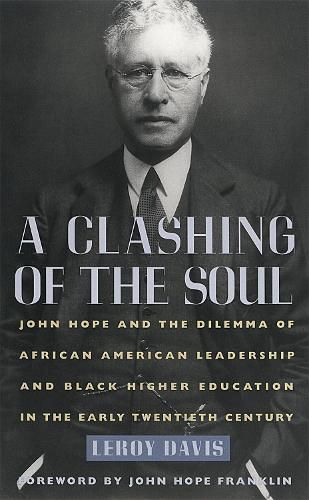Readings Newsletter
Become a Readings Member to make your shopping experience even easier.
Sign in or sign up for free!
You’re not far away from qualifying for FREE standard shipping within Australia
You’ve qualified for FREE standard shipping within Australia
The cart is loading…






John Hope (1868-1936), the first African American president of Morehouse College and Atlanta University, was one of the most distinguished in the pantheon of early-twentieth-century black educators. Born of a mixed-race union in Augusta, Georgia, shortly after the Civil War, Hope had a lifelong commitment to black public and private education, adequate housing and health care, job opportunities, and civil rights that never wavered. Hope became to black college education what Booker T. Washington was to black industrial education.Leroy Davis examines the conflict inherent in Hope’s attempt to balance his joint roles as college president and national leader. Along with his good friend W. E. B. Du Bois, Hope was at the forefront of the radical faction of black leaders in the early twentieth century, but he found himself taking more moderate stances in order to obtain philanthropic funds for black higher education. The story of Hope’s life illuminates many complexities that vexed African American leaders in a free but segregated society.
$9.00 standard shipping within Australia
FREE standard shipping within Australia for orders over $100.00
Express & International shipping calculated at checkout
John Hope (1868-1936), the first African American president of Morehouse College and Atlanta University, was one of the most distinguished in the pantheon of early-twentieth-century black educators. Born of a mixed-race union in Augusta, Georgia, shortly after the Civil War, Hope had a lifelong commitment to black public and private education, adequate housing and health care, job opportunities, and civil rights that never wavered. Hope became to black college education what Booker T. Washington was to black industrial education.Leroy Davis examines the conflict inherent in Hope’s attempt to balance his joint roles as college president and national leader. Along with his good friend W. E. B. Du Bois, Hope was at the forefront of the radical faction of black leaders in the early twentieth century, but he found himself taking more moderate stances in order to obtain philanthropic funds for black higher education. The story of Hope’s life illuminates many complexities that vexed African American leaders in a free but segregated society.